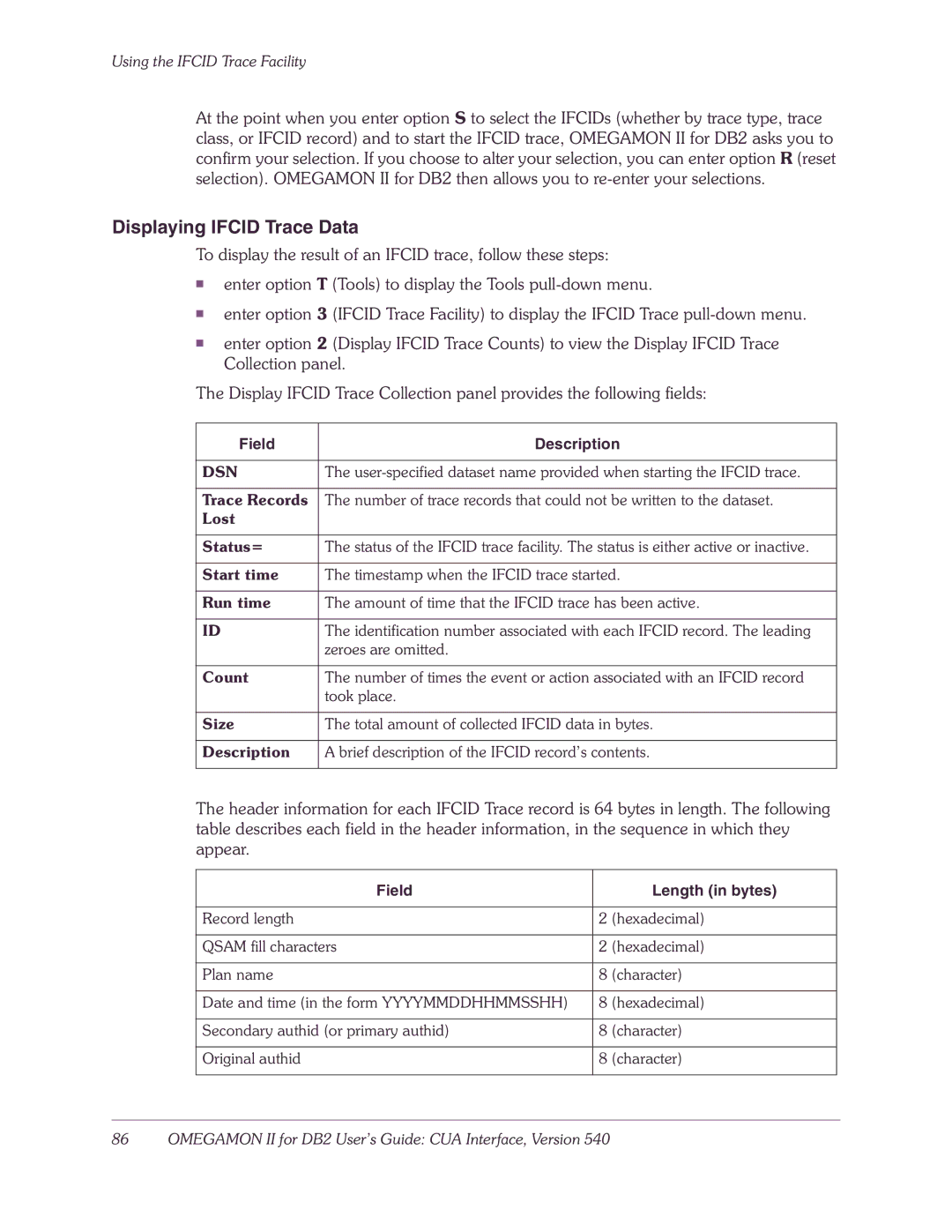Using the IFCID Trace Facility
At the point when you enter option S to select the IFCIDs (whether by trace type, trace class, or IFCID record) and to start the IFCID trace, OMEGAMON II for DB2 asks you to confirm your selection. If you choose to alter your selection, you can enter option R (reset selection). OMEGAMON II for DB2 then allows you to
Displaying IFCID Trace Data
To display the result of an IFCID trace, follow these steps:
■enter option T (Tools) to display the Tools
■enter option 3 (IFCID Trace Facility) to display the IFCID Trace
■enter option 2 (Display IFCID Trace Counts) to view the Display IFCID Trace Collection panel.
The Display IFCID Trace Collection panel provides the following fields:
Field | Description |
|
|
DSN | The |
|
|
Trace Records | The number of trace records that could not be written to the dataset. |
Lost |
|
|
|
Status= | The status of the IFCID trace facility. The status is either active or inactive. |
|
|
Start time | The timestamp when the IFCID trace started. |
|
|
Run time | The amount of time that the IFCID trace has been active. |
|
|
ID | The identification number associated with each IFCID record. The leading |
| zeroes are omitted. |
|
|
Count | The number of times the event or action associated with an IFCID record |
| took place. |
|
|
Size | The total amount of collected IFCID data in bytes. |
|
|
Description | A brief description of the IFCID record’s contents. |
|
|
The header information for each IFCID Trace record is 64 bytes in length. The following table describes each field in the header information, in the sequence in which they appear.
Field |
| Length (in bytes) |
|
|
|
Record length | 2 | (hexadecimal) |
|
|
|
QSAM fill characters | 2 | (hexadecimal) |
|
|
|
Plan name | 8 | (character) |
|
|
|
Date and time (in the form YYYYMMDDHHMMSSHH) | 8 | (hexadecimal) |
|
| |
Secondary authid (or primary authid) | 8 (character) | |
|
| |
Original authid | 8 (character) | |
|
|
|
